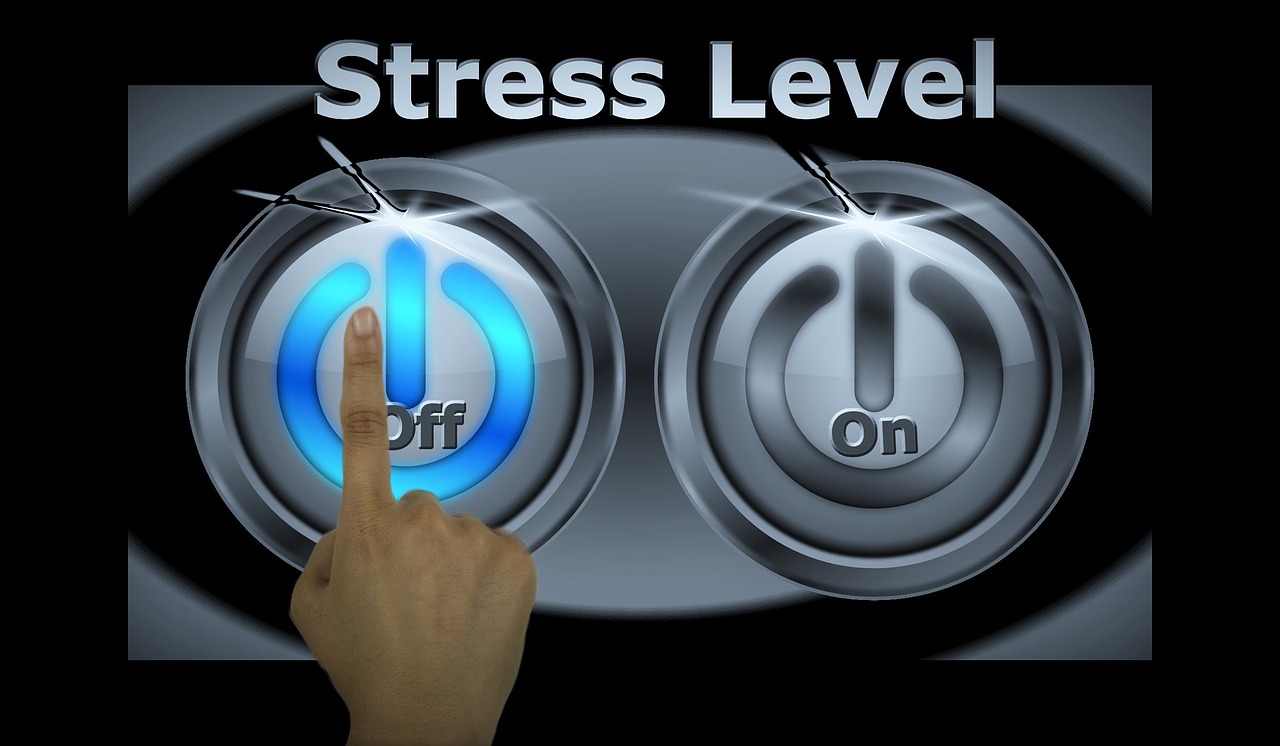
As a former professional poker player, I know first-hand how detrimental stress is to the body.
Riding the emotional roller-coaster of professional gambling caused me to develop chronic fatigue and poor digestive health. Eventually I discovered the practice of yoga which allowed me to manage my stress and ultimately led me away from my toxic poker-playing lifestyle.
Most of us realize that stress is bad, but why is it bad? What is actually going on inside our bodies when we’re cursing bad drivers or worrying about bills? It might be surprising to learn how many different adverse effects stress has on our biology, including suppression of our immune system, an increase of harmful “free radicals” and the destruction our ability to produce vital hormones.
Yoga and meditation will mitigate these biological effects and lead us toward a happier and healthier life. I encourage anyone dealing with even minor stress to give these practices a try!
The Stress Signal.
The first step that initiates harmful effects inside our bodies is when the brain perceives a “stress signal.” These signals can come from the external environment, such as someone cutting us off in traffic, or from our internal environment, such as when we have a worrisome thought about bills. The brain actually cannot distinguish our thoughts from reality when interpreting stress signals. So if we even think about something stressful, like worrying about paying bills, the brain perceives this thought as a direct and immediate threat and initiates the same processes as it would to a “real” danger in the environment.
~
One of the most important things you can do for your vagina and your sex life—to avoid a world of problems later? Check out this device and get a free bag of craft coffee (code; EJCOFFEE)>>
~
Once the brain perceives the stress signal, it sends a message, via a tiny molecule called a neurotransmitter, to the adrenal glands. The brain says, “Hey adrenal glands, something crazy is happening! Get ready for a fight or give us some energy so we can run!” The adrenal glands start releasing hormones into the bloodstream, two of which some people may have heard of called cortisol and adrenaline. [1]
The Effects of Adrenaline and Cortisol.
Adrenaline causes our pupils to widen and our blood vessels begin to dilate. Our heart starts to beat faster and tiny tubes in our lungs called bronchioles dilate allowing us to absorb oxygen into the bloodstream faster. Cortisol then increases our blood sugar and causes cells to metabolize glucose more quickly, giving us an immediate boost of energy. These hormones can be very useful in certain dangerous situations however long term stress and consequently overproduction of these hormones have detrimental effects on the body. [2]
Adrenaline and cortisol, sometimes referred to as stress hormones, are among a broader spectrum of hormones released as a result of stress. These stress hormones actually send a signal to our immune system saying, “Hey, there’s danger! Stop fighting infection, we have bigger problems than viruses and bacteria right now.” So stress actually impedes our immune system’s ability to properly function. [3]
Overproduction of Stress Hormones Causes an Increase of Harmful Free Radicals.
These hormones also cause our cells to work really hard. Imagine being on the job and all of a sudden someone starts shouting, “Work faster! Produce more! No resting!” This over-activation of our cells causes them to produce more cellular waste. Cells are like mini-humans and need to eliminate toxins just like we do. When trillions of cells are producing more waste for an extended period of time, we have a problem. This cellular waste can take the form of what are commonly referred to as free radicals. Free radicals are molecules having an oxygen molecule which is missing an electron. [4]
These molecules are out of balance because of this missing electron and they want to balance themselves by finding a replacement electron. If one is not immediately available to them, they will try to “steal” an electron from healthy cells. Imagine trying to do something on the computer and all of a sudden someone comes along and takes the mouse and keyboard. These free radicals can inhibit the normal functioning of our cells in this way by stealing their electrons and disrupting our cells ability to operate normally. [5]
Chronic Stress Can Prevent our Bodies From Producing Vital Hormones.
In minor doses, these effects are minimal. Problems arise when we are exposed to these hormones for hours, days or even years at a time. Because adrenaline increases our blood sugar, the pancreas needs to produce and release more insulin to regulate this increase in blood pressure. Insulin is a hormone which assists cells in absorbing glucose so those cells can use the glucose for energy. Insulin also serves to maintain homeostasis of our blood sugar levels. Too much insulin in the bloodstream in the long term can cause cells to become resistant to insulin. This creates a vicious cycle where the body tries to compensate by releasing more insulin into the bloodstream. In extreme cases the pancreas becomes overworked and is no longer able to produce enough insulin resulting in diabetes. [6]
Similarly people who are exposed to long term stress may no longer be able to produce adrenaline and cortisol resulting in what is called adrenal fatigue. Eventually the body simply runs out of the raw materials needed to produce these hormones. Without these hormones our bodies cannot properly regulate our blood sugar levels causing symptoms such as difficulty waking up even after a long night’s sleep, high levels of fatigue throughout the day, inability to handle stress effectively and an improperly functioning immune system. [7]
Yoga and Meditation Prevent the Stress Response.
Knowing what is going on inside the body at a basic level can help us realize how detrimental chronic stress is to our health. There are many simple changes we can make in our lives, even for those among us who are incredibly busy, that can help us to manage stress. Yoga and meditation are both great options as these practices activate the parasympathetic nervous system initiating the “rest and digest” response. When this part of our nervous system is activated, it is impossible for our bodies to go into the fight or flight response. This is because the fight or flight response is governed by a different part of our nervous system called the sympathetic nervous system and both systems cannot be activated simultaneously. [2]
Practice Conscious Breathing.
Some people might insist that they don’t have time for these practices and for these people there is conscious breathing. Conscious breathing can be immediately incorporated into their lives because it can be practiced anywhere, even in the car or while at work. To do conscious breathing, simply take a deep inhale, filling up the whole abdominal region with air, and then slowly exhale. When doing this, bring awareness to the whole physiological process of breathing. Doing this even once activates the parasympathetic nervous system and prevents the body from over-excreting harmful stress hormones. [2]
~
References:
-
Leonard, B. E. “The HPA and immune axes in stress: the involvement of the serotonergic system.” European Psychiatry 20 (2005): S302-S306.
-
“Understanding the Stress Response.” Harvard Health Publications. Harvard Medical School, Mar. 2011. Web. 1 Aug. 2016.
-
Khansari, David N., Anthony J. Murgo, and Robert E. Faith. “Effects of Stress on the Immune System.” Immunology Today 11 (1990): 170-75. Science Direct. 12 Mar. 2003. Web. 1 Aug. 2016.
-
Wellen, Kathryn E., and Craig B. Thompson. “Cellular Metabolic Stress: Considering How Cells Respond to Nutrient Excess.” Molecular cell 40.2 (2010): 323–332. PMC. Web. 2 Aug. 2016.
-
Bandyopadhyay, Uday, Dipak Das, and Ranajit K. Banerjee. “Reactive oxygen species: oxidative damage and pathogenesis.” CURRENT SCIENCE-BANGALORE- 77 (1999): 658-666.
-
Chiu HK, Tsai EC, Juneja R, et al. (August 2007). “Equivalent insulin resistance”. Diabetes Research and Clinical Practice. PubMed. 77: 237–44.
-
DEMITRACK, M. A. and CROFFORD, L. J. (1998), Evidence for and Pathophysiologic Implications of Hypothalamic-Pituitary-Adrenal Axis Dysregulation in Fibromyalgia and Chronic Fatigue Syndrome. Annals of the New York Academy of Sciences, 840: 684–697. doi:10.1111/j.1749-6632.1998.t
b09607.x
Relephant:
90 Second Sanity Pit Stop. {Meditation Practice}
Author: John Miller
Apprentice Editor: Josette Myers; Editor: Travis May
Ready to join?
Hey, thanks so much for reading! Elephant offers 1 article every month for free.
If you want more, grab a subscription for unlimited reads for $5/year (normally, it's $108/year, and the discount ends soon).
And clearly you appreciate mindfulness with a sense of humor and integrity! Why not join the Elephant community, become an Elephriend?
Your investment will help Elephant Journal invest in our editors and writers who promote your values to create the change you want to see in your world!
Already have an account? Log in.
Ready to join?
Hey, thanks so much for reading! Elephant offers 1 article every month for free.
If you want more, grab a subscription for unlimited reads for $5/year (normally, it's $108/year, and the discount ends soon).
And clearly you appreciate mindfulness with a sense of humor and integrity! Why not join the Elephant community, become an Elephriend?
Your investment will help Elephant Journal invest in our editors and writers who promote your values to create the change you want to see in your world!
Already have an account? Log in.
Ready to join?
Hey, thanks so much for reading! Elephant offers 1 article every month for free.
If you want more, grab a subscription for unlimited reads for $5/year (normally, it's $108/year, and the discount ends soon).
And clearly you appreciate mindfulness with a sense of humor and integrity! Why not join the Elephant community, become an Elephriend?
Your investment will help Elephant Journal invest in our editors and writers who promote your values to create the change you want to see in your world!
Already have an account? Log in.

 Share on bsky
Share on bsky







Read 0 comments and reply